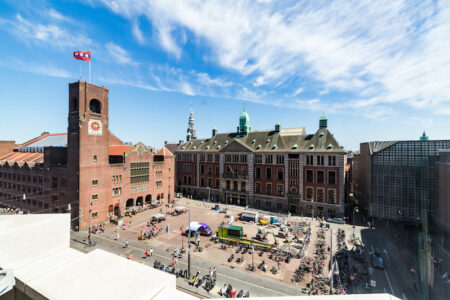UK confectionery market expects growth despite Brexit trading challenges

2016’s The Apprentice winner, Alana Spencer, marks the launch of her new products and Cakeprenuer initiative at the Speciality and Fine Food Fair with Lord Sugar.
Market uncertainties with Brexit have made many UK firms wary of investment, including within confectionery. But as Neill Barston reports, Euromonitor research indicates there may be hope ahead
As the Food and Drink Federation has recently highlighted, the manufacturing sector in the UK is facing an overhanging cloud in the form of Brexit.
The ongoing uncertainty over how the economic picture is likely to unfold over the next few years is already having a dramatic effect on a number of industries, and much will hinge on whether the government’s draft agreement with Brussels over Britain’s departure from the EU is accepted.
The industry is still sizeable though – with 2018 registering a 1% year-on-year retail growth to £6.4 billion, making it one of the most significant markets in Europe.
However, mounting pressure on manufacturers to reduce sugar content have also prompted ripples of disquiet, in the knowledge that reformulation is a costly process.
Despite such factors, research from Euromonitor suggests that value and volume growth is expected to be marginal in chocolate confectionery between 2018 and 2023 as the category reaches maturity.
However, pockets of growth within the premium segment will boost the overall performance. This is underpinned by growing premiumisation and indulgence trends that the research group says are expected to see more consumers turning to premium chocolate as they adopt the “better but less” approach.
As Euromonitor notes, there has been Increased awareness of cocoa sourcing that saw ethical products perform well in 2018, with organic chocolate recording growth.
Similarly, the gifting trend saw more British consumers purchasing chocolates with toys and novelty items such as Kit Kat Senses. But, increasing concern around sugar consumption and its correlation with weight gain and food-related diseases is expected to put pressure on chocolate consumption.
As consumers increasingly pursue a healthy lifestyle for their children and themselves, it is expected to prompt them to look for healthier and more nutritious snacking alternatives.
However, it seems the industry is now taking note, including product reformulation from the likes of Nestle seen this year, and also Mars due in the New Year.
There has also been growth in smaller-scale artisan production, as with the likes of Alana Spencer’s brand supported by Lord Alan Sugar, known as Ridiculously Rich by Alana.
Furthermore, as Adrian Ling, director of Plamil Foods confirmed, there has been an upturn in free-from confectionery.
He said: This has been an exciting year of settling in with our product ranges, but it’s been rewarding, and from speaking to everyone that we deal with in the market, they have all been so positive about what we are doing.
“We have seen that there has been definite growth in the free-from market, and there has been strong demand for our products.”
Meanwhile, Rob Whitehead, of Fudge Kings, added that there had been challenges during the past year for many in the sector. While he says that general economic uncertainty, he believed that the company’s focus on quality had given it cause for optimism.
“We’re well placed to deliver new products, and the fact that fudge is relatively inexpensive, between £1-£2, means that it has done well with retailers we deal with, and we are actually doing well with our exports to Germany and Scandinavia.”



